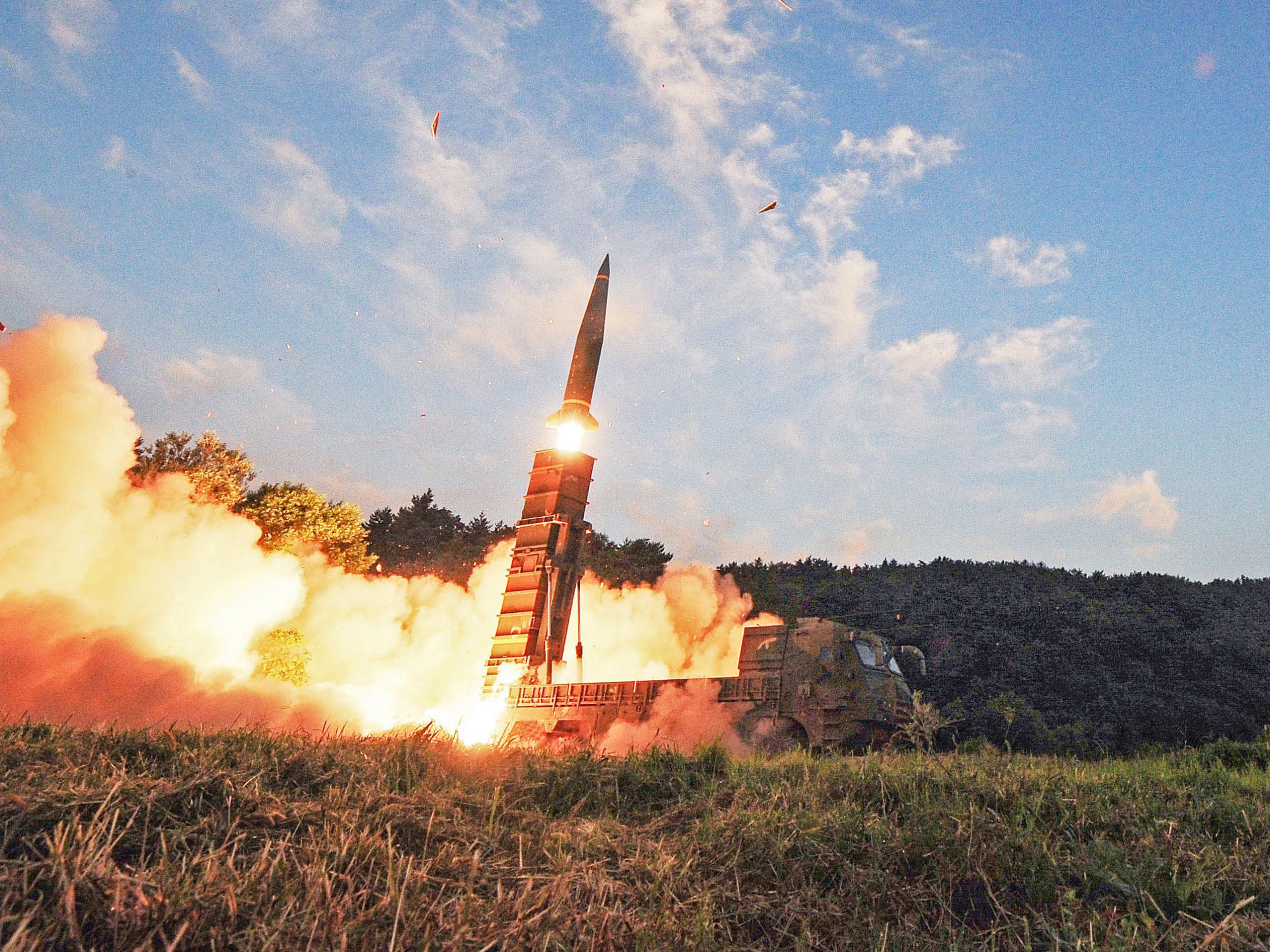North Korea threatens to 'sink Japan into the sea with a nuclear bomb' and reduce US to 'ashes and darkness'
Pyongyang’s Korea Asia-Pacific Peace Committee hits out at UN Security Council over sanctions and calls southern neighbour 'traitors and dogs'

Your support helps us to tell the story
From reproductive rights to climate change to Big Tech, The Independent is on the ground when the story is developing. Whether it's investigating the financials of Elon Musk's pro-Trump PAC or producing our latest documentary, 'The A Word', which shines a light on the American women fighting for reproductive rights, we know how important it is to parse out the facts from the messaging.
At such a critical moment in US history, we need reporters on the ground. Your donation allows us to keep sending journalists to speak to both sides of the story.
The Independent is trusted by Americans across the entire political spectrum. And unlike many other quality news outlets, we choose not to lock Americans out of our reporting and analysis with paywalls. We believe quality journalism should be available to everyone, paid for by those who can afford it.
Your support makes all the difference.A North Korean state agency has threatened to use nuclear weapons to “sink” Japan and reduce the United States to “ashes and darkness” for supporting a UN Security Council resolution and sanctions over its latest nuclear test.
Pyongyang’s Korea Asia-Pacific Peace Committee, which handles the North’s external ties and propaganda, also called for the breakup of the Security Council, which it called “a tool of evil” made up of “money-bribed” countries that move at the order of the United States.
“The four islands of the archipelago should be sunken into the sea by the nuclear bomb of Juche. Japan is no longer needed to exist near us,” the committee said in a statement carried by the North’s official KCNA news agency.
Juche is the North’s ruling ideology that mixes Marxism and an extreme form of go-it-alone nationalism preached by state founder Kim Il-sung, the grandfather of the current leader, Kim Jong-un.
Regional tensions have risen markedly since the reclusive North conducted its sixth, and by far its most powerful, nuclear test on 3 September.
The 15-member Security Council voted unanimously on a US-drafted resolution and a new round of sanctions on Monday in response, banning North Korea’s textile exports that are the second largest only to coal and mineral, and capping fuel supplies.
The North reacted to the latest action by the Security Council, which had the backing of veto-holding China and Russia, by reiterating threats to destroy the United States, Japan and South Korea.
Japan refuelling US missile defence ships keeping watch on North Korean threat: source
“Let’s reduce the US mainland into ashes and darkness. Let’s vent our spite with mobilisation of all retaliation means which have been prepared till now,” the statement said.
Japan’s Nikkei stock index and dollar/yen currency pared gains, although traders said that was more because of several Chinese economic indicators that were released on Thursday rather than a reaction to the North’s latest statement.
South Korea’s won also edged down around the same time over domestic financial concerns.
The North’s latest threats also singled out Japan for “dancing to the tune” of the United States, saying it should never be pardoned for not offering a sincere apology for its “never-to-be-condoned crimes against our people”, an apparent reference to Japan’s wartime aggression.
It also referred to South Korea as “traitors and dogs” of the United States.
Japan criticised the North’s statement harshly.
“This announcement is extremely provocative and egregious. It is something that markedly heightens regional tension and is absolutely unacceptable,” Japanese Chief Cabinet Secretary Yoshihide Suga told a regular news conference on Thursday.
North Korea had already categorically rejected the Security Council resolution imposing sanctions over its latest test, vowing to press ahead with its nuclear and missile programmes in defiance of international pressure.
A tougher initial US draft of Monday’s resolution was weakened to win the support of China and Russia. Significantly, it stopped short of imposing a full embargo on oil exports to North Korea, most of which come from China.
The latest sanctions also make it illegal for foreign firms to form commercial joint ventures with North Korean entities.
US President Donald Trump has vowed that North Korea will never be allowed to threaten the United States with a nuclear-tipped missile, but has also asked China to do more to rein in its isolated neighbor. China in turn favors an international response to the problem.
The North accuses the United States, which has 28,500 troops in South Korea, of planning to invade and regularly threatens to destroy it and its Asian allies.
The United States and South Korea are technically still at war with North Korea because the 1950-53 Korean conflict ended with a truce and not a peace treaty.
Reuters
Join our commenting forum
Join thought-provoking conversations, follow other Independent readers and see their replies
Comments